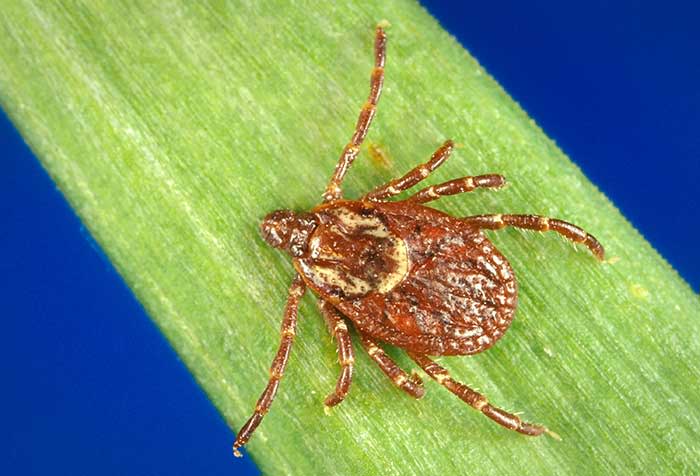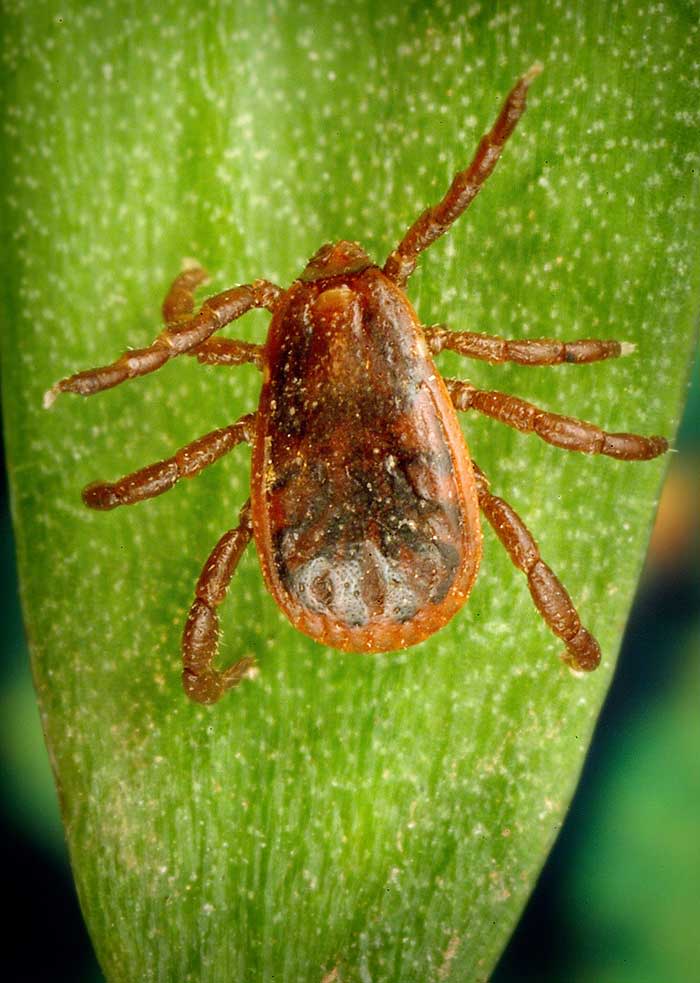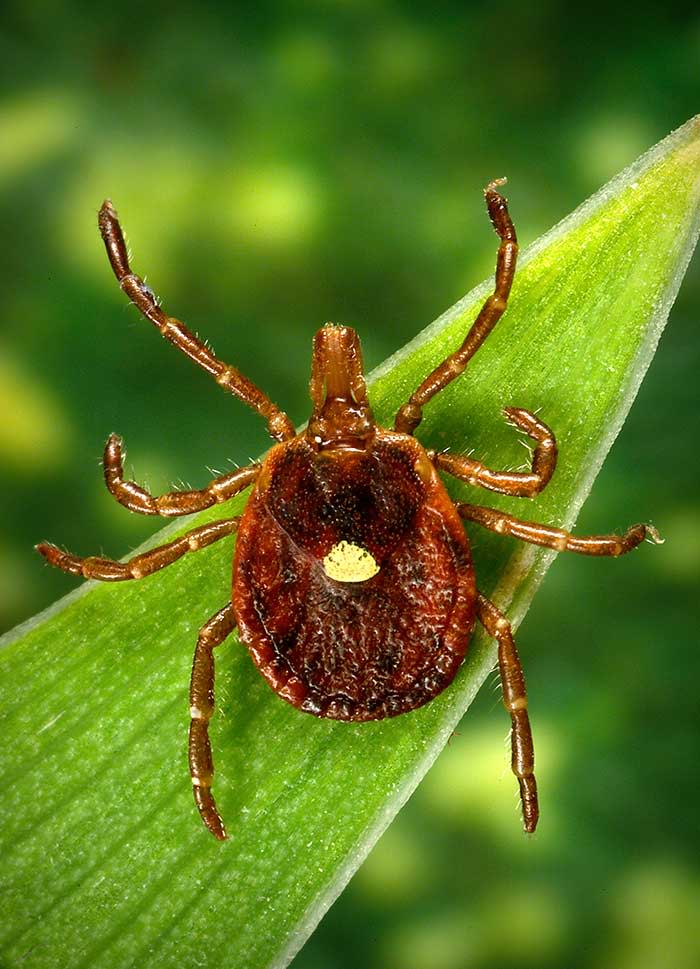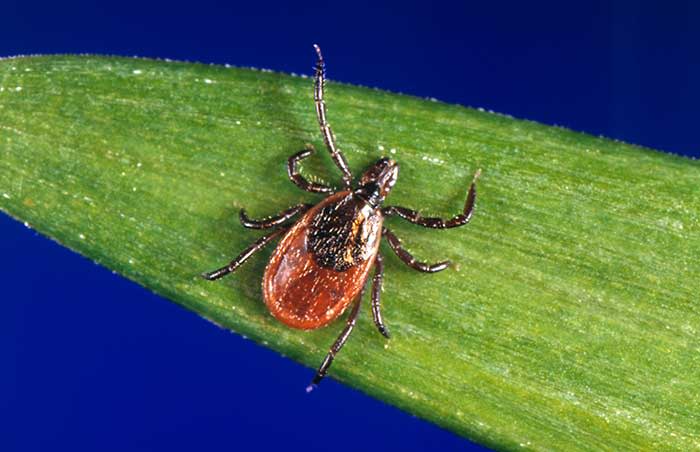Tick-borne diseases on the rise: Here's what to know about tick season in Asheville, NC
While ticks are found year-round in North Carolina, they begin to be more of a risk in late spring.
The CDC says that nearly 500,000 people are treated for tick-borne illnesses yearly in the US. With the potential for some seriously unpleasant — and potentially fatal — symptoms, you don't want to be one of those people.
One of the best tools for preventing these illnesses is knowledge, and organizations like the CDC and North Carolina State University's entomology department are excellent sources of information for N.C. residents. Here's what to know about ticks and tick-borne illnesses as the dreaded season begins.
More: Answer Woman: How is climate change affecting tick populations?
What types of ticks are in NC?
North Carolina State University's page on ticks and tick-borne diseases names these four species as the most common ticks in North Carolina:
American dog tick

Brown dog tick

Lone star tick

Blacklegged (deer) tick

What tick-borne illnesses are in NC?
Rocky Mountain spotted fever, carried by American dog ticks
Lyme disease, carried by lone star ticks and blacklegged ticks
Ehrlichiosis, carried by lone star ticks and blacklegged ticks
The CDC has also acknowledged growing evidence that alpha-gal syndrome, which causes a red meat allergy, may be triggered by lone star tick bites and potentially other tick species.
More: No Mow May; Why should I stop mowing for a month?
What ticks carry Lyme disease?
According to NCSU, Lyme disease is primarily carried by blacklegged, or deer, ticks. Luckily, blacklegged ticks are not generally aggressive toward humans, meaning that Lyme disease doesn't spread as much as it might otherwise. While the disease is also found in lone star ticks, which are more keen on attacking humans, only a small number of infected lone star ticks have been collected in the Southeast.
What are the worst months for ticks?
Ticks are found year-round in N.C. but you're most likely to be bitten in the late spring, summer and fall.
More: Do cicadas really attract copperheads? What to know about emergences in Asheville area
What to do if you find a tick on you
Most know that you should remove an attached tick as soon as possible after locating it. However, it's important to remove them correctly, as improper removal can cause further complications. Here are NCSU's tips for removing a tick:
Use a piece of folded tissue paper or tweezers when removing ticks, as diseases carried by an engorged tick can enter even microscopic breaks in your skin.
Grasp the body of the attached tick firmly as close as possible to your skin. Without twisting or jerking the tick, pull directly away from the point of attachment, increasing the force gradually until the tick is pulled free.
If a part of the tick breaks off in your skin, use a sterilized needle to remove it as you would a splinter.
Wash the bite area with soap and water and apply an antiseptic such as alcohol.
Wash your hands thoroughly with soap and water after removing the tick.
Mark the date of the tick bite on a calendar. If you develop any symptoms of Rocky Mountain spotted fever or Lyme disease, you will be able to tell your physician when you were bitten.
Save the tick by preserving it in rubbing alcohol. If you can't identify the species using NCSU's guide or a similar one, bring the tick to your county Cooperative Extension center for identification.
How to prevent tick bites
NCSU included a section on how to prevent tick bites on its devoted webpage. It suggests the following:
Stay on wide, clear paths and roads, and avoid overgrown weedy areas where ticks are often found.
Layer your clothing including tucking your pant legs into your socks and your shirt tail into your pants.
Wear light-colored clothing to make ticks more visible.
Apply one of their suggested insect repellents on exposed areas of your body and to your clothing.
Check an area for ticks before camping or picnicking by dragging a piece of white flannel cloth or clothing over grass and shrubs and then examining it for ticks.
Examine your clothing and body at least twice each day when spending time in an area that likely houses ticks. As ticks must be attached for at least six hours to transmit Rocky Mountain spotted fever and more than 24 hours to transmit Lyme disease, frequent checks are crucial in avoiding tick-borne illnesses.
More: 2024 hurricane season outlook worsens for North Carolina: La Nin?a is on its way
Iris Seaton is the trending news reporter for the Asheville Citizen Times, part of the USA TODAY Network. Reach her at [email protected].
This article originally appeared on Asheville Citizen Times: Tick season in NC: Prevent Lyme disease, Rocky Mountain spotted fever
